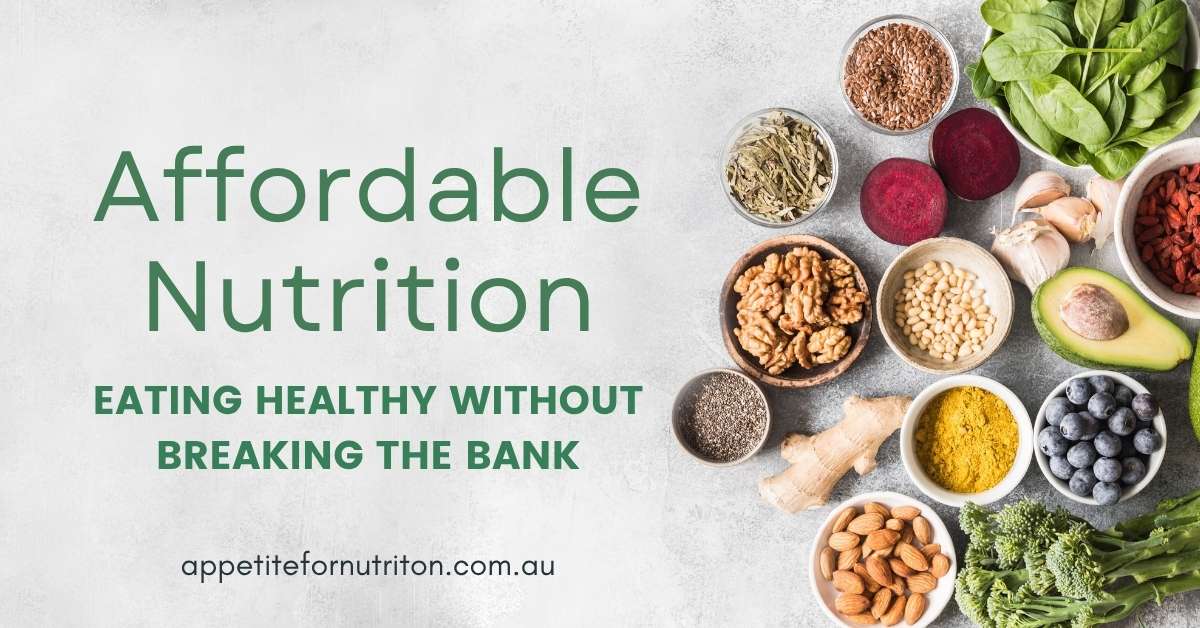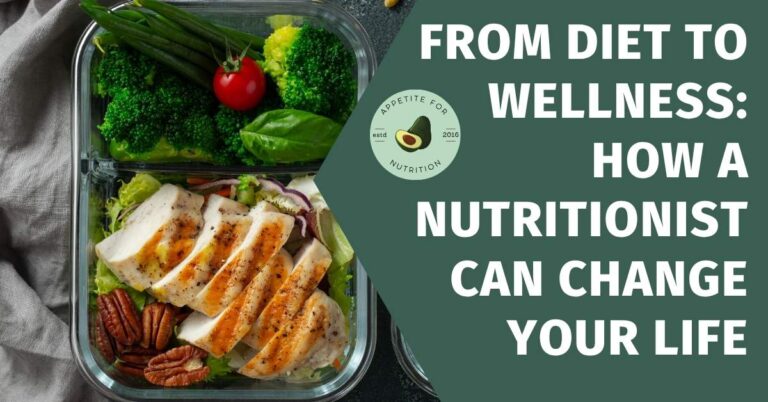
Affordable Nutrition: Eating Healthy Without Breaking the Bank
With grocery prices rising, many people feel stuck choosing between eating well and staying within budget. The good news? Healthy eating on a budget is absolutely achievable — and with the right strategies, it can even save you money over time.
Eating nutritious meals doesn’t require expensive “health foods.” With smart planning, simple swaps, and practical shopping habits, affordable nutrition can fit into any lifestyle.
This guide shares dietitian-approved tips to help you eat well, reduce food waste, and stretch your grocery budget — without sacrificing your health.
1. Plan Your Meals for the Week
Meal planning is one of the most effective ways to eat well on a budget. Having a plan helps reduce impulse buys, cut food waste, and ensure meals are balanced and satisfying.
Budget-friendly meal planning tips:
Choose seasonal produce, which is often cheaper and fresher
Batch cook meals to freeze or repurpose for lunches
Plan for leftovers (e.g. roast vegetables becoming wraps or salads the next day)
Meal planning is especially helpful for families — consistent meals reduce stress and support routines around food. You may also find our guide to shaping children’s eating habits helpful when planning meals for kids.
💡 Need help creating affordable, realistic meals?
Our dietitian-designed meal plans focus on simple, nourishing foods that support health while staying within budget.
View budget-friendly meal plans
2. Shop Smart to Save More
Smart grocery shopping can make a significant difference to your food budget — and your nutrition.
Dietitian-approved shopping tips:
Make a list and stick to it
Compare unit prices (per 100g or litre)
Buy staples like grains and legumes in bulk
Choose store-brand products, which often offer the same nutrition at a lower cost
Use loyalty programs, weekly specials, and digital coupons
Choose “imperfect” produce, such as Woolworths’ Odd Bunch range — same nutrition, lower price
💡 For more practical supermarket tips, see our blog on healthy snacks on the go from Australian supermarkets.
3. Focus on Nutrient-Dense, Low-Cost Foods
Some of the most nutritious foods are also the most affordable. Building meals around these staples supports both health and budget.
Affordable, nutrient-dense foods include:
Eggs – versatile and high in protein
Beans and lentils – budget-friendly plant proteins rich in fibre
Oats – filling, inexpensive, and heart-healthy
Frozen fruits and vegetables – just as nutritious as fresh and last longer
Whole grains like brown rice and wholemeal pasta
According to the Australian Dietary Guidelines, choosing a variety of vegetables, legumes, whole grains, and lean proteins supports good health while remaining budget-friendly.
4. Cook More at Home (Without Making It Complicated)
Cooking at home is usually far cheaper than takeaway and gives you control over ingredients and portions. It doesn’t need to be time-consuming or complex.
Simple, budget-friendly cooking tips:
Start with 5-ingredient meals
Use affordable proteins like eggs, canned fish, legumes, or tofu
Choose one-pan, tray-bake, or slow-cooker meals for ease
⏱️ Short on time and finding food costs adding up?
A dietitian can help you create a practical eating plan that balances nutrition, time, and budget.
Work with a dietitian
5. Reduce Food Waste to Save Money
Food waste is one of the biggest hidden costs in household budgets. Small changes can significantly reduce how much food is thrown away.
Ways to cut food waste:
Store produce correctly to extend shelf life
Use the FIFO method (“first in, first out”)
Repurpose leftovers into soups, frittatas, or stir-fries
Reducing waste not only saves money — it also supports sustainability and reduces weekly grocery costs.
When to Seek Extra Support
If budgeting for food feels overwhelming, or you’re unsure how to balance nutrition with cost, professional support can help.
At Appetite for Nutrition, we offer:
General nutrition consults
Specialised dietitian support (including bariatrics, women’s health, feeding therapy, eating disorders, gut health, and sports nutrition)
Appointments are available online and in person across Brisbane, Gold Coast, Melbourne, Shepparton, Bendigo, and Albury-Wodonga.
🥗 Make healthy eating affordable and sustainable
If food costs are causing stress or you’re unsure where to start, our dietitians can help you build confidence with food and budgeting.
Book a dietitian appointment
Explore affordable meal plans
Final Thoughts
Healthy eating on a budget is not about restriction — it’s about making informed, realistic choices. With thoughtful planning, smart shopping, and simple meals, affordable nutrition can support both your health and your finances.
You don’t need perfection — just practical strategies that work for your life.
Frequency Asked Questions
Looking for more information? Explore our FAQs for clear, evidence-based answers about nutrition services, NDIS dietitian support, Telehealth appointments, and meal planning programs.
Stick to whole foods like oats, eggs, beans, and seasonal produce. Buying in bulk, choosing store brands, and planning meals ahead can significantly lower grocery costs.
Yes — frozen fruits and veggies are picked at peak ripeness and retain most nutrients. They’re also often cheaper and reduce waste.
A dietitian can create a realistic meal plan that suits your financial situation, dietary needs, and health goals. They can also help you shop smarter and make cost-effective swaps.
Absolutely — the key is moderation. Choose budget-friendly, balanced options like grilled proteins, salads, or wraps instead of fast food or heavy takeout meals.
Yes — under professional guidance. For individuals with elevated LDL or a family history of heart disease, eggs can be included in moderation alongside a diet rich in fibre, plant foods, and unsaturated fats.



